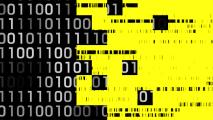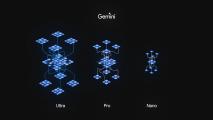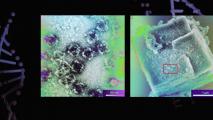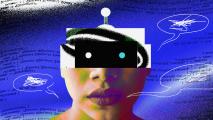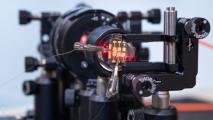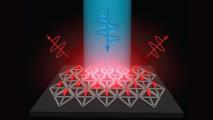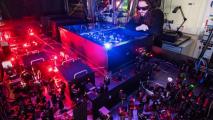
The Digital Frontier
30 years ago, the Internet opened up a new frontier, and today we’re all citizens of a digital Wild West, where how we live, work and govern is changing everyday.
More
What does the future hold for generative AI?
Rodney Brooks, co-founder of iRobot, kicks off a symposium on the promise and pitfalls of increasingly powerful AI tools like ChatGPT.
IBM unveils world’s largest quantum chip
Tech giant IBM is pushing the field of quantum computing forward with Condor, the world’s largest quantum chip.
Supercomputer uses machine learning to set new speed record
Frontier, the ORNL supercomputer, used machine learning to set a new speed record of 9.95 quintillion calculations per second.
Google’s new Gemini AI beats GPT-4 in 30 of 32 tests
Tech giant Google has unveiled the multimodal Gemini AI, its “largest and most capable” AI model ever released.
Technology expert tells us why the AI “doomer” narrative is all wrong
Alex Kantrowitz believes “doomerism” is born of our misplaced and exaggerated human propensity for fear. Plus, fear sells.
Grinding scientists: Mechanochemistry could revolutionize the creation of new materials
Like a kitchen mortar and pestle, mechanochemistry harnesses ball milling to create chemical compounds, simpler, and faster than traditional methods.
GPT-4 is able to buy stuff on Amazon, researchers say
AI researchers successfully trained a GPT-4-based agent, dubbed the MM-Navigator, to “buy” products on Amazon.
Waze will now tell you if a road has a history of car accidents
Navigation app Waze’s new Crash History Alerts let drivers know when they’re approaching an area prone to car accidents.
Analog computing is undergoing a resurgence
Combining smart sensors with an older technology — analog computing — could dramatically reduce their power consumption.
“Iron Man” material made from DNA and glass is 4x stronger than steel
Using only DNA and glass, researchers made a material four times stronger and five times lighter than steel. It was inspired by Iron Man.
This AI companion could forever change how you feel about tech
Silicon Valley tech startup New Computer has unveiled Dot, an AI companion that could forever change our relationship with tech.
Ex-NASA engineer Mark Rober created the world’s smallest Nerf gun — from DNA
Mark Rober and Pallav Kosuri created a Nerf gun so tiny they had to build it out of DNA. This DNA “origami” has the potential to revolutionize engineering.
Why this startup is creating edible oil from sawdust
ÄIO’s main goal is to replace palm oil with oil upcycled from low-value industry organics in order to prevent further deforestation.
Should you charge your phone overnight? Will “overcharging” make it explode?
Does prolonged (or overnight) charging wreak havoc on your phone battery? An expert answers this and other common battery questions.
ChatGPT forces us to ask: how much of “being human” belongs to us?
Large language models have been trained on massive amounts of “natural” human language — just like us. Does this make the robots part human?
Watch how video games are approaching perfect photorealism
Platforms like Unreal Engine 5 are enabling independent developers to create realistic digital worlds.
You can now talk to ChatGPT and show it pictures
OpenAI is rolling out new features that let subscribers talk to ChatGPT and show it pictures, enabling more intuitive interactions.
New experiment brings us closer to unbreakable quantum encryption
Researchers at Linkӧping University have built a quantum random number generator to be easier to integrate into consumer electronics.
Arrays of quantum rods could enhance TVs or virtual reality devices
MIT engineers have used DNA origami scaffolds to create structured arrays of quantum rods, which could be incorporated into LEDs.
Is quantum computing hype or almost here?
The potential of quantum computing is vast, but it remains uncertain when or if we will be able to harness its full capabilities.
Get inspired with the most innovative stories shaping the world around us.



